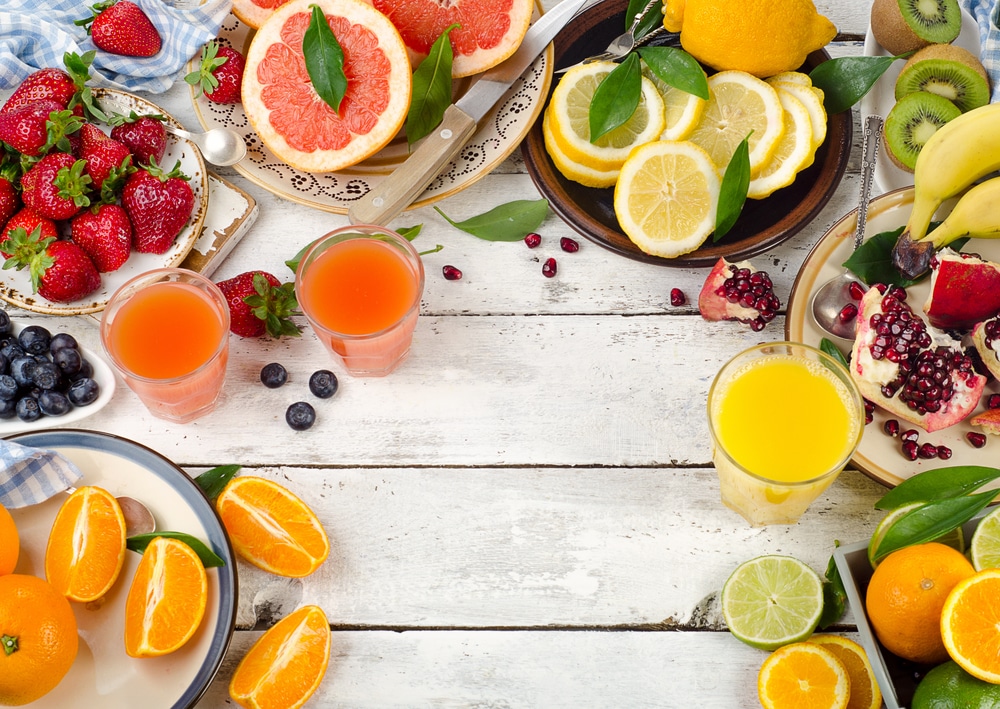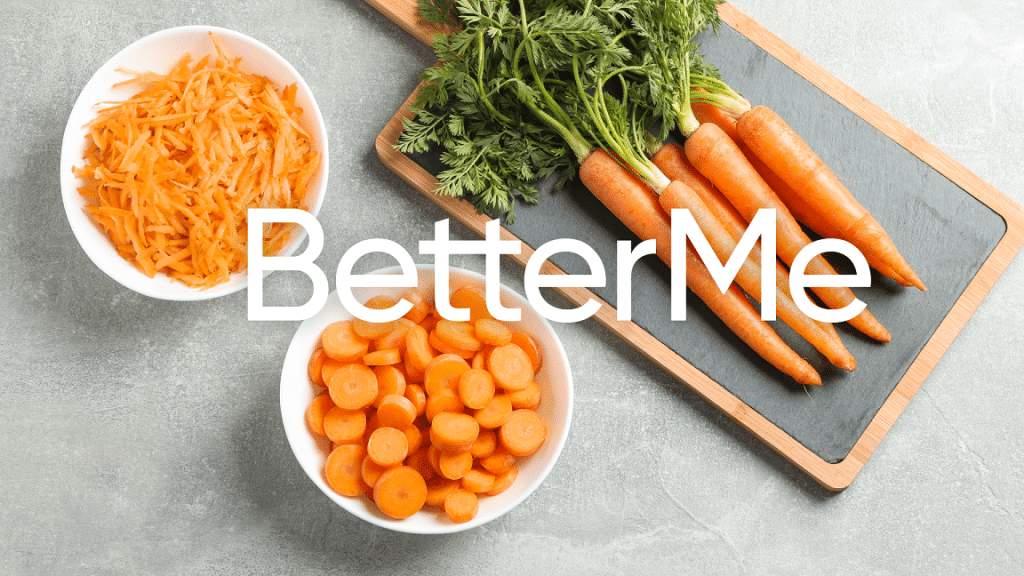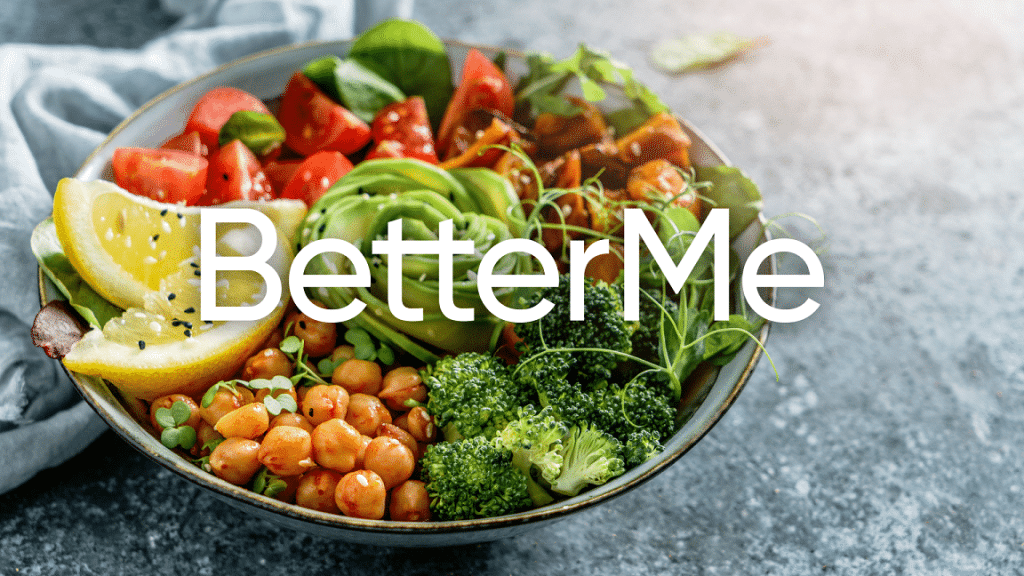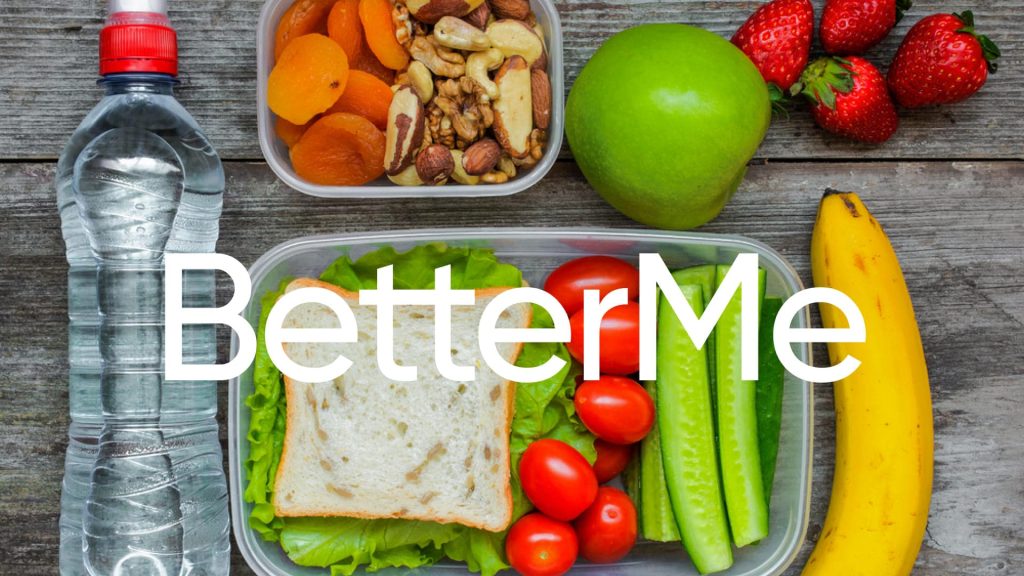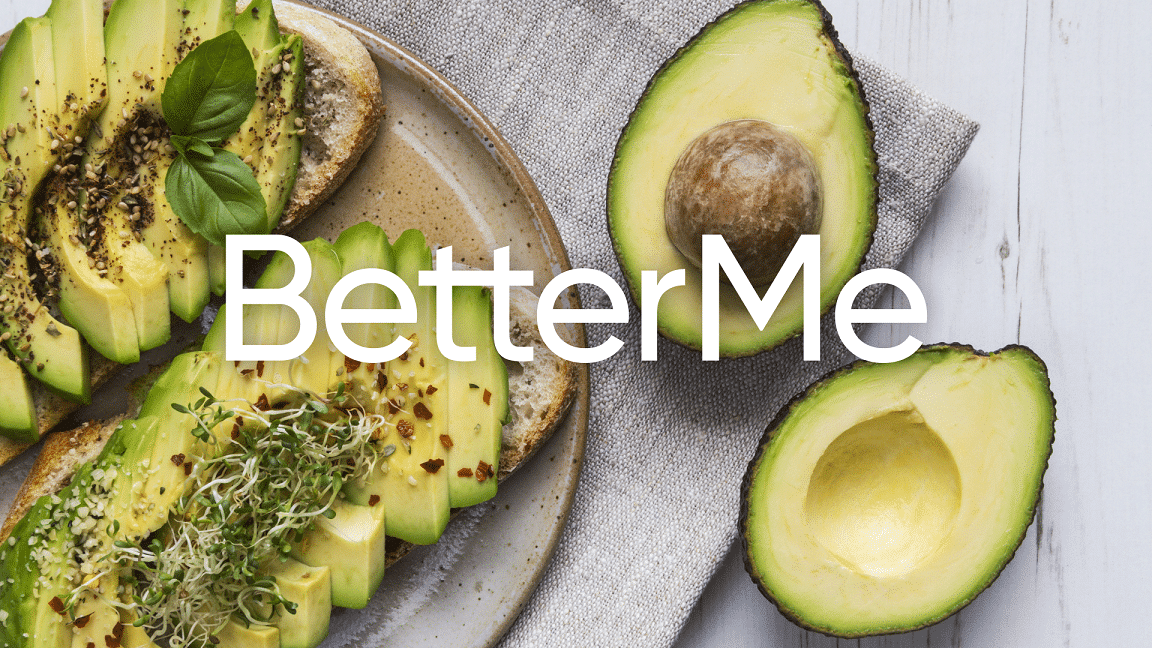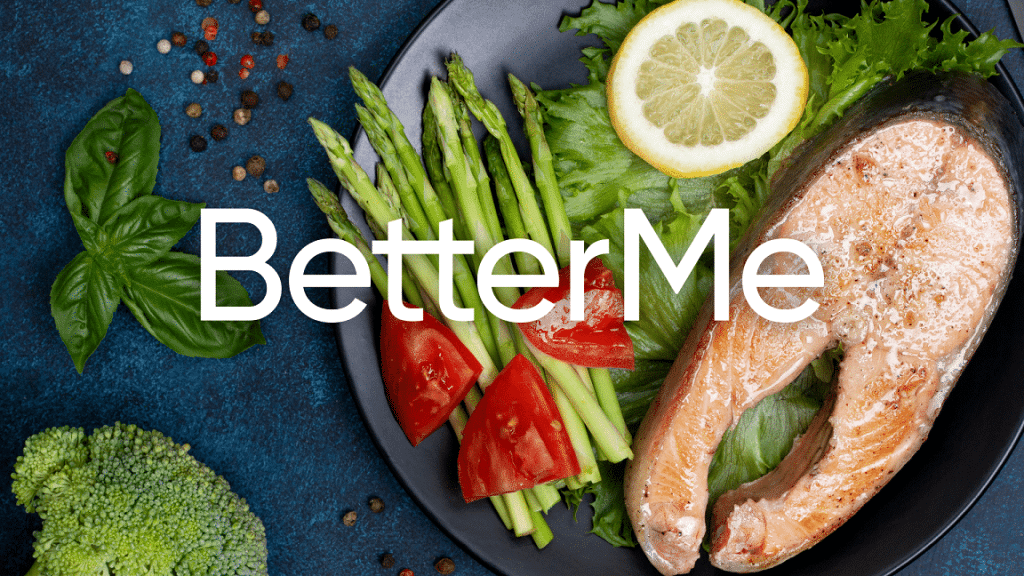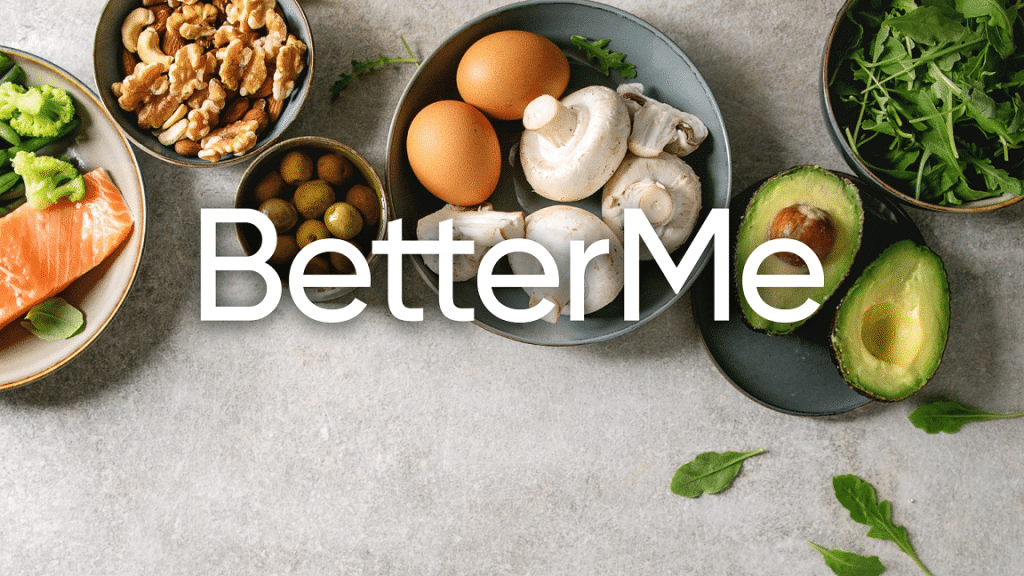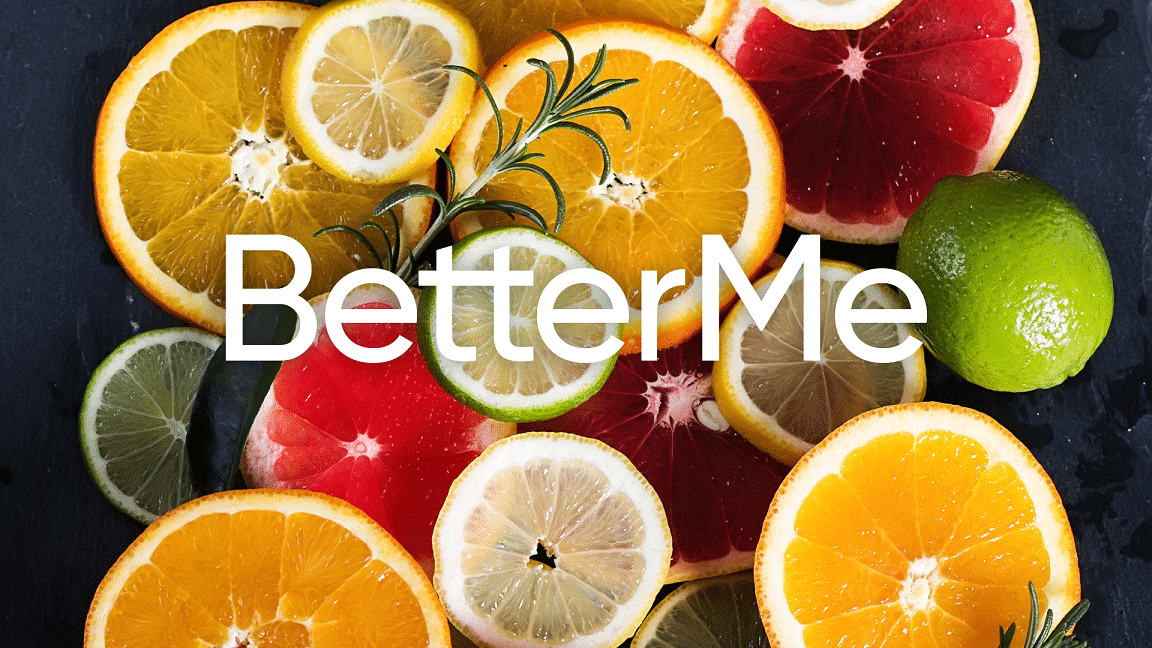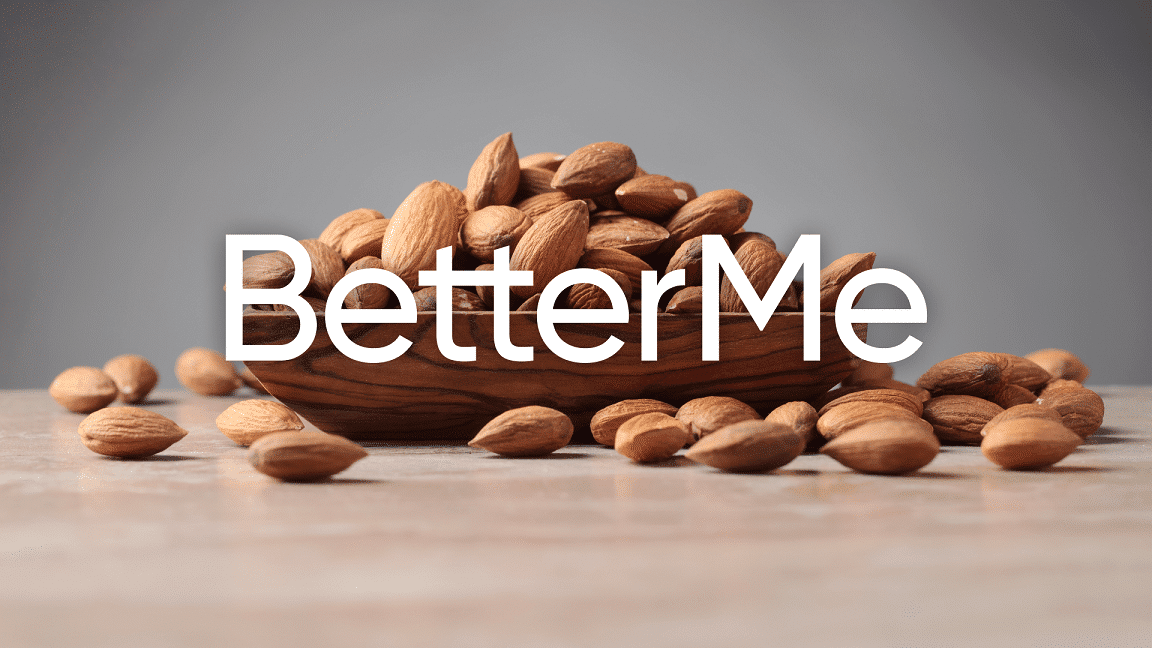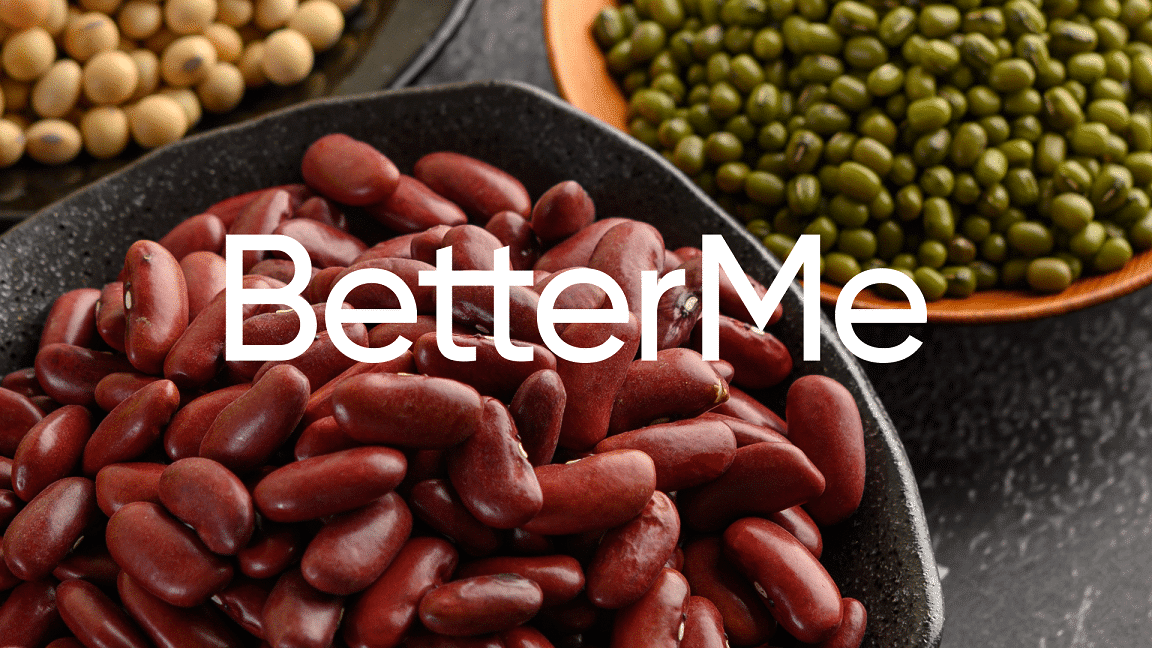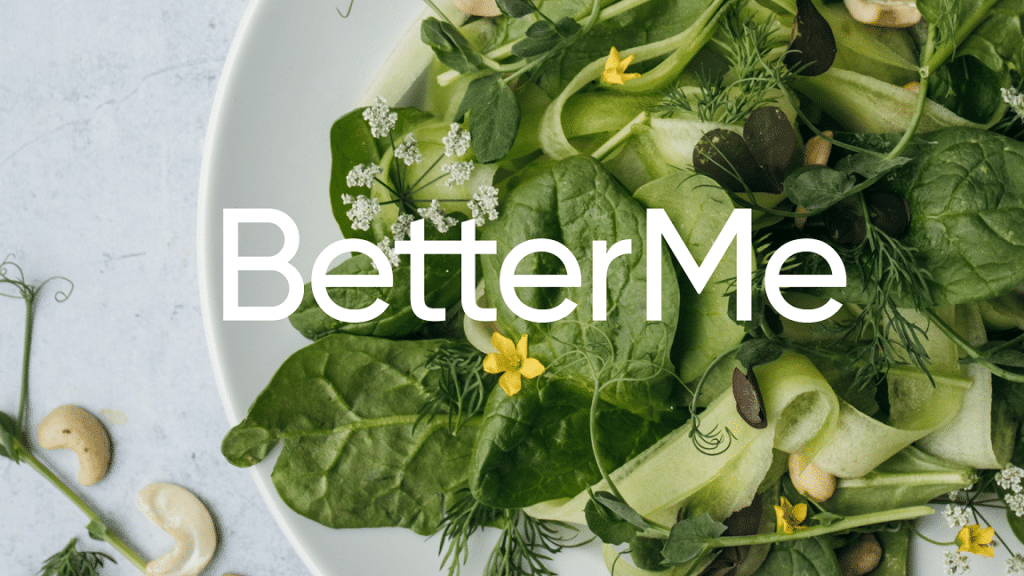You probably recall taking gummy vitamins as a child because your parents said they would help you grow bigger. Perhaps your earliest memory is eating lots of carrots, hoping to see in the dark. The vitamins in carrots, and other foods, will not give you night vision but play critical roles in your body. Indeed, vitamins are some of the most important yet often misunderstood nutrients.
There are 13 essential vitamins that the human body requires. Because the body cannot synthesize these nutrients and only gets them from food, they are crucial. If you are wondering whether you are getting enough vitamins, this article is for you. Find out more about foods that have 13 essential vitamins, what your body needs them for, and when you should take supplements.
What Are The 13 Essential Vitamins?
They are micronutrients that play an essential role in keeping you healthy. The 13 essential vitamins and minerals help in the growth, development, and maintenance of cells in your body. Some of these nutrients are not stored in the body, so you need to replenish them regularly. The best way to do so is by eating a nutrient-dense and varied diet.
Taking multivitamin supplements is a popular way of ensuring you meet your body’s nutritional needs. However, it is not always the best way. We discuss when it is necessary to take multivitamins further along in this article.
The 13 essential vitamins list is categorized into two: fat-soluble and water-soluble vitamins.
Water-Soluble Vitamins
9 of the 13 essential vitamins dissolve in water and are readily absorbed into the body tissues. All the B vitamins (B1, B2, B3, B5, B6, B7, B9, B12) and Vitamin C are water-soluble. These micronutrients are not stored in the body in significant quantities.
Any excess amounts not absorbed are excreted in the urine. Therefore, they need to be replenished regularly through a nutrient-dense diet. It is rare for water-soluble vitamins to accumulate in the body to toxic levels. However, there may be side effects to excess consumption – vitamin c, for example, can cause diarrhoea if taken in excess (1).
Fat-Soluble Vitamins
Vitamins A, D, E, and K dissolve in fats. They are transported through the body and in the bloodstream in fat globules. If consumed in excess, they are stored in the liver and fatty tissues. They can accumulate to toxic levels, mainly when derived from supplements (1). In the absence of fat, these vitamins are not absorbed well.
Read More: Essential Vitamins And Foods That Provide Them
Vitamin A (Retinoids And Carotene)
Vitamin A is a fat-soluble vitamin found in many foods. Your body needs it to perform the following functions:
- Maintain healthy vision
- Support the immune system
- Maintain healthy skin, hair, bones, and teeth
- Support cell development
Vitamin A takes two forms; preformed and provitamin. Preformed vitamin A is commonly referred to as retinoids. They are found in meat, poultry, fish and dairy. Provitamin A is frequently referred to as carotene. It is found in fruits and vegetables.
The amount of vitamin A you need depends on factors such as age and sex. According to the National Institutes of Health, an adult male requires 900mcg of retinol daily, or an equivalent amount of other forms (12). An adult female requires 700mcg.
Although Vitamin A deficiency is rare, certain groups are at a higher risk of lacking the nutrient. Premature infants, pregnant women, breastfeeding women, and people with cystic fibrosis might have trouble getting sufficient quantities.
The most common symptom of Vitamin A deficiency is the inability to see in low light. This condition, called Xerophthalmia, can lead to blindness if left untreated (12). It turns out that your childhood belief was not entirely incorrect – eating carrots can help you see better in the dark.
Foods That Provide Preformed Vitamin A (Retinoids)
- Beef liver
- Eggs
- Shrimp
- Fish
- Fortified milk
- Butter
- Swiss cheese
- Cheddar cheese
Foods That Provide Provitamin A (Carotene)
- Sweet potatoes
- Carrots
- Pumpkins
- Squash
- Spinach
- Cantaloupe
- Apricots
- Mangoes
Vitamin B1 (Thiamin)
Thiamin is a water-soluble vitamin that aids in the conversion of carbohydrates into energy. It helps your body to:
- Maintain healthy nerve function
- Maintain healthy skin, hair, and muscles
The recommended amounts of thiamin per day vary based on age and sex. The National Institutes of Health recommends 1.2mg per day for adult males and 1.1 mg per day for adult females (11).
Thiamin deficiency is rare. However, alcoholics, the elderly, people with HIV/AIDS, people with diabetes, and those who have had bariatric surgery are at a higher risk of deficiency. Thiamin deficiency can cause the following symptoms:
- Loss of appetite
- Loss of weight
- Confusion
- Memory loss
- Muscle weakness
- Heart problems
- Beriberi
- Wernicke-Korsakoff syndrome
Foods That Provide Vitamin B1 (Thiamin)
- Pork
- Fish
- Whole grains such as brown rice
- Ham
- Legumes
- Soymilk
- Watermelons
- Acorn squash
Vitamin B2 (Riboflavin)
Riboflavin is a water-soluble vitamin that is essential for the conversion of food into energy. It also helps your body to:
- Metabolize fats, drugs, and steroids
- Grow new cells
- Maintain healthy cell function
The National Institutes of Health recommends 1.3mg of riboflavin per day for adult males and 1.1mg for adult females (9). These figures vary based on age and sex.
Although Riboflavin deficiency is rare, some people are more at risk of experiencing it than others. Athletes on a vegan diet, pregnant women, breastfeeding women, and people with riboflavin transporter deficiency.
Of the 13 essential vitamins, a vegan diet is most likely to lower the intake of riboflavin (9). Not getting enough riboflavin causes the following symptoms:
- Skin disorders
- Sores at the corners of your mouth
- Swollen or cracked lips
- Hair loss
- Sore throat
- Liver disorders
- Problems with your reproductive system
- Problems with your nervous system
Foods That Provide Vitamin B2 (Riboflavin)
- Milk
- Eggs
- Yoghurt
- Cheese
- Meats
- Green leafy vegetables
- Whole grains such as brown rice
- Fortified cereals
Vitamin B3 (Niacin)
Niacin, like the other essential B vitamins, helps turn food into energy. It allows your body to perform other functions such as:
- Maintain healthy skin and nerves
- Regulate cholesterol levels
The recommended daily intake of niacin varies based on age and sex. Pregnant women require higher amounts of this nutrient. According to the National Institutes of Health, adult males should take 16mg niacin equivalents (NE) while females need 14 mg NE (7).
Niacin deficiency is rare. However, some people may have trouble getting enough of this vitamin. People with AIDS, Inflammatory Bowel Disease, alcohol use disorder, anorexia, and liver cirrhosis are more likely to be undernourished (7).
Niacin deficiency can also occur in people whose diet is low in iron, riboflavin, or vitamin B6. Because these nutrients are essential for niacin manufacture, their absence can lead to deficiency.
If you do not get enough niacin from the foods you eat, you may present the following symptoms:
- Pellagra
- Rough skin
- Bright red tongue
- Headaches
- Digestive issues
- Depression
- Lethargy
- Aggressive behaviour
- Paranoia
- Suicidal ideation
- Hallucinations
- Memory loss
Foods That Provide Vitamin B3 (Niacin)
- Meat
- Poultry
- Fish
- Whole grains
- Fortified grains
- Mushrooms
- Potatoes
- Peanut butter
Whether you’re looking to simply pep up your fitness routine, jazz up your diet with mouth-watering low-calorie recipes or want to get your act together and significantly drop that number on your scale – BetterMe app has got you covered! Improve your body and revamp your life with us!
Vitamin B5 (Pantothenic Acid)
Like other essential B vitamins, Pantothenic acid helps convert the food you eat into the energy you need. Additionally, it allows your body to perform the following functions:
- Breakdown fats for energy
- Produce neurotransmitters
- Manufacture steroid hormones
- Manufacture red blood cells
A healthy adult of either gender requires 5mg of pantothenic acid. Pregnant and breastfeeding women need higher amounts of this nutrient, 6mg and 7mg, respectively (8). Most people get enough pantothenic acid from their diet.
However, those with a rare genetic disorder called pantothenate kinase-associated neurodegeneration might be at risk of deficiency (8). Severe deficiency causes symptoms such as:
- Numbness and burning sensation in hands and feet
- Headache
- Lethargy
- Irritability
- Restlessness
- Sleeping problems
- Stomach pain
- Heartburn
- Diarrhoea
- Nausea
- Vomiting
- Loss of appetite
Foods That Provide Vitamin B5 (Pantothenic Acid)
- Chicken
- Egg yolk
- Whole grains
- Broccoli
- Mushrooms
- Avocados
- Tomatoes
Vitamin B6 (Pyridoxine)
Vitamin B6 is an essential micronutrient that occurs naturally in many foods. It helps your body perform various crucial tasks, including:
- Manufacture red blood cells
- Maintain cognitive abilities
- Convert tryptophan to niacin and serotonin
- Lower homocysteine levels to reduce the risk of heart disease
According to the National Institutes of Health, adults under 50 years require 1.3mg of this nutrient regardless of gender. Males over 50 years require 1.7mg, while females require 1.5mg (14).
Vitamin B6 deficiency is more likely to occur in people with kidney problems, those undergoing dialysis and those who have had a kidney transplant. Autoimmune disorders such as Crohn’s disease, rheumatoid arthritis, and ulcerative colitis are equally at risk of deficiency (14).
Vitamin B6 deficiency causes a host of symptoms, including:
- Anaemia
- Itchy rashes
- Scaly skin
- Cracked lips
- Swollen tongue
- Cracks at the corner of the mouth
- Depression
- Confusion
- Weak immunity
Foods That Provide Vitamin B6 (Pyridoxine)
- Meat
- Fish
- Poultry
- Legumes
- Tofu
- Soy products
- Potatoes
- Noncitrus fruits such as watermelons
Vitamin B12 (Cyanocobalamin)
Vitamin B12, like the other B vitamins, plays an essential role in energy production. It also assists your body to do the following:
- Keep blood cells healthy
- Manufacture DNA in cells
- Maintain healthy nerves
- Prevent megaloblastic anemia
- Break down fatty acids and amino acids
The amount of Vitamin B12 you need in a day is solely dependent on age. Adults need 2.4mcg of this nutrient, according to the NIH. Pregnant and breastfeeding women require higher doses; 2.8mcg (13).
Some people have trouble absorbing this nutrient from food. Therefore, they are at risk of deficiency. The elderly who do not have enough hydrochloric acid to absorb the vitamin, people with pernicious anaemia, vegans, and those who have had gastrointestinal surgery are at risk.
Symptoms of deficiency include:
- Lethargy
- Constipation
- Loss of appetite
- Weight loss
- Megaloblastic anaemia
- Numbness and tingling of limbs
- Poor memory
- Confusion
- Dementia
Foods That Provide Vitamin B12 (Cyanocobalamin)
Only animal foods have this vitamin naturally. Other sources may be fortified.
Vitamin B7 (Biotin)
Biotin is one of the essential vitamins that help convert food into energy. It supports your body in performing the following functions:
- Synthesize glucose
- Make and break down fatty acids
- Maintain healthy bones and hair
Adults require 30mcg of Biotin per day, according to the NIH. Some of this nutrient is manufactured by bacteria in the gastrointestinal tract. However, it is not clear how much of this product the body absorbs (2). Therefore, food remains the best source of Biotin.
Biotin deficiency is more likely to occur in people with a rare genetic disorder called “biotinidase deficiency” (2). People with alcohol dependence and pregnant women might also have trouble getting enough of this nutrient.
Biotin deficiency can cause the following symptoms:
- Hair thinning
- Hair loss
- Rash around the eyes, nose, and mouth
- Seizures
- Skin infection
- Nervous system disorders
Foods That Provide Vitamin B7 (Biotin)
- Organ meats, e.g. liver
- Whole grains
- Egg yolk
- Fish
- Soybeans
Read More: Do Vitamins Break A Fast: Exploring The Impact Of Supplements On Fasting
Vitamin C (Ascorbic Acid)
Many people believe that Vitamin C helps reduce colds. However, according to Harvard Health, there is no convincing evidence to support this claim (6). Vitamin C supports your body in several other functions, including:
- Protect cells from damage
- Manufacture collagen for wound healing
- Improve the absorption of iron from plant-based foods
- Support the immune system
The amount of Vitamin C you need daily depends on age and sex. Adult males require 90mg, while adult females require 75mg. According to the NIH, smokers need 35mg more than their daily recommended amount (15). Smoking increases the presence of free radicals and causes your body to use up more Vitamin C to protect cells from damage.
Other than smokers, infants who are fed cow milk are also at risk of Vitamin C deficiency. Some medical conditions, such as cancer and kidney disease, may have trouble absorbing this nutrient from food. Vitamin C deficiency can cause scurvy, a potentially fatal disease.
Foods That Provide Vitamin C (Ascorbic Acid)
- Citrus fruits such as oranges
- Potatoes
- Broccoli
- Spinach
- Bell peppers
- Tomatoes
- Brussels sprouts
- Fortified foods and beverages
Vitamin D (Calciferol)
Vitamin D is a fat-soluble nutrient produced when your skin is exposed to sunlight. It helps your body perform several functions, such as:
- Calcium absorption
- Strengthen bones
- Muscle mobility
- Neurotransmission
- Support the immune system
According to the NIH, adults under 70 years need 15mcg (600 IU) of Vitamin D (16). The elderly (above 71 years) require more of this nutrient, 20mcg (800 IU) per day. Almost one out of four people in the US have vitamin D blood levels that are inadequate for overall health
Those at a higher risk of deficiency include breastfed infants, older adults, obese people, dark-skinned people and those suffering from conditions that limit fat absorption. Vitamin D deficiency causes rickets, a bone disease. It can also cause osteomalacia, that is, bone and muscle weakness.
Your body produces vitamin D when your skin is exposed to sunlight. However, due to cloudy weather and smog, not everyone gets sunlight exposure daily. Ultraviolet radiation may cause skin cancer, so you should not spend too much time in the sun (16).
Foods That Provide Vitamin D
- Fatty fish like salmon, mackerel, and tuna
- Beef liver
- Cheese
- Egg yolk
- Mushrooms
- Fortified milk
- Fortified breakfast cereals
Vitamin E (Alpha-Tocopherol)
Vitamin E is a fat-soluble nutrient that performs several vital functions. Many believe that it prevents wrinkles and slows other ageing processes. According to Harvard Health, there is insufficient evidence to support these claims (6). However, Vitamin E helps your body to do the following:
- Protect cell from damage
- Protect Vitamin A and other lipids from damage
- Prevent Alzheimer’s disease
- Boost the immune system
The National Institutes of Health recommends a daily intake of 15mg for adults (17). Most people do not get sufficient amounts of this nutrient from their diet.
Vitamin E deficiency is more likely to occur in people who have conditions that cause malabsorption of fat. It is because Vitamin E needs some fat for it to be absorbed.
Vitamin E deficiency can cause nerve and muscle damage. It may also weaken one’s immune system.
Foods That Provide Vitamin E (Alpha-Tocopherol)
- Vegetable oils
- Salad dressings
- Leafy green vegetables
- Whole grains
- Nuts
Vitamin B9 (Folate)
Folate is an essential vitamin that is responsible for DNA formation. It helps your body to perform other functions such as
- Cell division
- DNA production
- Prevent brain and spine defects in newborns
Pregnant women need high quantities of folate in the first weeks of pregnancy to prevent congenital disabilities. The NIH recommends a daily intake of 600mcg for pregnant women and 400mcg for other healthy adults (4).
Folate deficiency is more likely in teen girls, people with alcohol dependency and those suffering from diseases that lower nutrient absorption. Lack can cause the following symptoms:
- Neural tube defects in newborns
- Megaloblastic anaemia
- Heart palpitations
- Open sores in the mouth
- Shortness of breath
- Headache
- Irritability
Foods That Provide Folate
- Fortified grains and cereals
- Asparagus
- Okra
- Spinach
- Turnip
- Broccoli
- Legumes like chickpeas
- Orange juice
- Tomato juice
If you struggle to even flirt with the idea of giving up your favorite foods or working out till your legs give way – BetterMe app is here to breathe a fresh perspective into the way you view the weight loss process! Check out the app and experience the fun side of fitness and dieting with BetterMe!
Vitamin K
Vitamin K is a fat-soluble nutrient responsible for blood clotting and bone health. Your body makes 50% of vitamin K (18). However, you need to get the rest from food.
The NIH recommends 120mcg of vitamin K per day for adult males and 90mcg for adult females (18). Newborns who don’t receive a vitamin K injection at birth may be at risk of deficiency. People with certain medical conditions that decrease nutrient absorption are also at risk of deficiency
Severe Vitamin K deficiency may cause bleeding problems and weak bones.
Foods That Provide Vitamin K
- Cabbage
- Liver
- Eggs
- Milk
- Spinach
- Broccoli
- Sprouts
- Kale
- Collards
How To Get All 13 Essential Vitamins And Minerals Every Day?
Knowing the 13 essential vitamins and what food contains it is important. The best way to get all the vital micronutrients every day is by eating a nutrient-dense diet. A diet that includes sufficient and varied types of fruits, vegetables, whole grains, healthful fats, and protein is ideal.
However, not everyone eats a healthful diet. The results of a study published in the Journal of Nutrition reveal that 90% of Americans do not get the required amounts of vitamin D and E from food (5). According to Harvard Health, specific demographics are at a high risk of vitamin deficiency (10):
- Elderly – eating difficulties, side effects from medication, isolation, and poor appetite cause inadequate food intake.
- Pregnant women – due to low intake of folate-rich foods, especially in women with unplanned pregnancies.
- People with digestive issues – some diseases such as celiac, cystic fibrosis, and gastric bypass surgery interfere with absorption of nutrients.
- People on medication – diuretics prescribed to lower blood pressure, proton pump inhibitors to treat heartburn, and carbidopa prescribed for Parkinson’s disease can interfere with nutrient absorption.
Multivitamin Supplements
Multivitamin supplements contain more than 13 essential vitamins and minerals. They provide 100% of the recommended quantities of these micronutrients (10). People who cannot take a healthful diet for any reason benefit from supplements. Supplementation may be useful if you are wondering how to get sufficient vitamins every day because:
- You are eating a limited diet.
- Your appetite is low, so you are eating less than usual.
- You have been prescribed a restricted diet after a surgical procedure.
- You have a condition that reduces your body’s ability to absorb nutrients.
- Your nutrient needs have increased temporarily due to pregnancy.
- You are too busy to eat a balanced diet every day.
It is a good idea to consult with a registered dietitian to evaluate your nutritional needs. They may suggest diet adjustments or supplements. Taking vitamins in doses that exceed the recommended daily allowance can be harmful. It can interfere with the absorption of other nutrients or become toxic if taken over long periods (10).
Pay attention to the labels on supplemental vitamins. Some brands contain extra herbs and botanicals that are supposedly beneficial. Typically, these extras lack research about potentially adverse effects (10).
Get your personalized
meal plan!

DISCLAIMER:
This article is intended for general informational purposes only and does not address individual circumstances. It is not a substitute for professional advice or help and should not be relied on to make decisions of any kind. Any action you take upon the information presented in this article is strictly at your own risk and responsibility!
SOURCES:
- An Overview of Vitamin Toxicity (2020, verywellhealth.com)
- Biotin (2021, nih.gov)
- Fat-Soluble vs. Water-Soluble Vitamins (2020, verywellhealth.com)
- Folate (2019, nih.gov)
- Foods, Fortificants, and Supplements: Where Do Americans Get Their Nutrients (2011, oup.com)
- Listing of vitamins (harvard.edu)
- Niacin (2019, nih.gov)
- Pantothenic acid (2019, nih.gov)
- Riboflavin (2019, nih.gov)
- Should I Take a Daily Multivitamin? (n.d., harvard.edu)
- Thiamin (2019, nih.gov)
- Vitamin A (2021, nih.gov)
- Vitamin B12 (2021, nih.gov)
- Vitamin B6 (2021, nih.gov)
- Vitamin C (2019, nih.gov)
- Vitamin D (2019, nih.gov)
- Vitamin E (2020, nih.gov)
- Vitamin K (2020, nih.gov)
